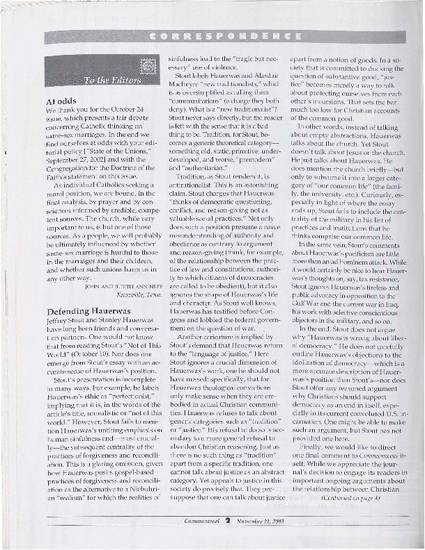
The commentary begins: Jeffrey Stout and Stanley Hauerwas have long been friends and conversation partners. One would not know that from reading Stout’s “Not of This World” (October 10). Nor does one emerge from Stout’s essay with an accurate sense of Hauerwas’s position.
Stout’s presentation is incomplete in many ways. For example, he labels Hauerwas’s ethic as “perfectionist,” implying that it is, in the words of the article’s title, unrealistic or “not of this world.” However, Stout fails to mention Hauerwas’s untiring emphasis on human sinfulness and-most crucially- the subsequent centrality of the practices of forgiveness and reconciliation. This is a glaring omission, given how Hauerwas posits gospel-based practices of forgiveness and reconciliation as the alternative to a Niebuhrian “realism” for which the realities of sinfulness lead to the “ tragic but necessary” use of violence.
Stout labels Hauerwas and Alasdair MacIntyre “new traditionalists,” which is as oversimplified as calling them “communitarians” (a charge they both deny). What is a “new traditionalist”? Stout never says directly, but the reader is left with the sense that it is a bad thing to be. Tradition, for Stout, becomes a generic theoretical category — something old, static, primitive, underdeveloped, and worse, “premodern” and “authoritarian.” …
Available at: http://works.bepress.com/brad_kallenberg/16/

Document is included in the repository for download with the permission of the publisher.
Permission documentation is on file.